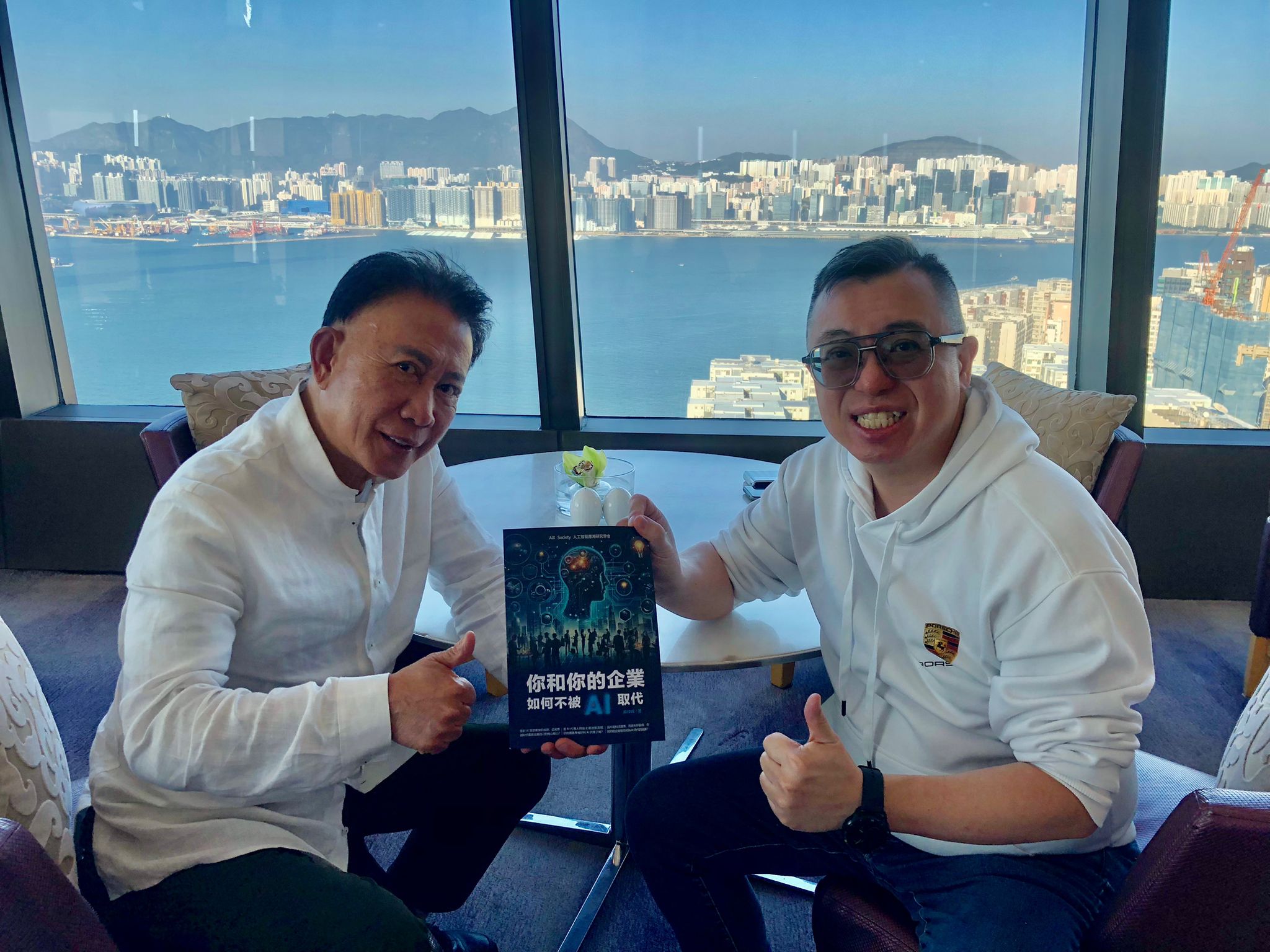Embracing the Future: AIX Society Applauds Hong Kong’s 2026 Budget and Pledges to Co-create a New AI Era
AIX Society applauds the Hong Kong AI Budget 2026, welcoming HK$100M+ in AI investments, an

I recently had the pleasure of having afternoon tea with Chef Martin Yan (Yan Can Cook) — a world-famous Chinese-American chef whose influence spans over four decades. Even after all these years, he still carries the same passion for food, culture, and storytelling that once lit up television screens around the world.
As we spoke about the global F&B industry, he shared something that stayed with me: the past few years have pushed restaurants to their limits — the pandemic, labor shortages, inflation, unstable supply chains, and rising rents. Many restaurant owners are exhausted. Some are hanging on. Many have closed.
But with the rise of AI and intelligent automation, he sees a renewed sense of hope returning to the industry.
That single comment sparked an entire afternoon of reflection.
Before we dive into AI and the future, there is something important to acknowledge.
For forty years, Martin Yan wasn’t just teaching cooking. He was teaching joy, culture, and human connection.
His shows brought laughter into homes. His humor, his rhythm, his signature chopping style, and his iconic line — “If Yan can cook, so can you!” — turned cooking into a universal language.
Watching him felt like being invited into a warm kitchen where food was only the beginning. Even at our tea, when he mimicked old gestures or reenacted funny moments, the entire table burst into applause. The room lit up instantly.
That ability to transmit warmth and humanity — that is the true soul of the F&B industry. And it’s something AI will never replace.
Martin believes AI’s biggest value isn’t about showing off futuristic machines. It’s about solving the very issues that have burdened the industry for decades:
• heavy reliance on manpower • severe labor shortages • repetitive, physically draining work • high cost pressure • inconsistency in quality
Today, AI is already silently reshaping kitchen operations:
• Automated prep systems cut ingredients with millimetre precision • Intelligent cooking arms control temperature and timing with perfect consistency • AI food-quality systems evaluate freshness, color, doneness, and predict spoilage • AI inventory systems reduce waste and optimize purchasing
None of these technologies exist to replace chefs. They exist to free them.
Martin put it beautifully:
“The hardest part of kitchen work isn’t the long hours. It’s doing the same repetitive task thousands of times. AI is finally taking on those parts that aren’t human at all.”
This is where the evolution begins.
Many people assume that an AI-powered restaurant means fewer humans. But the truth is the opposite.
AI can standardize production, but it can never replace:
• the warmth of a server’s smile • a chef telling the story behind a dish • the emotional connection between customers and staff • the shared cultural meaning of a meal
Martin understood this long before AI arrived. For forty years, people loved his shows not because of recipes, but because of the humanity he brought to food.
AI’s role is not to eliminate that. It is to remove the tasks that drown it out.
The future restaurant might look like this:
AI handles prep, timing, consistency, food safety, and logistics. Humans focus on creativity, storytelling, and hospitality.
Efficiency upgraded. Experience elevated. Soul preserved.
AI doesn’t just change kitchen workflows. It changes the entire business model.
What once required eight kitchen staff may soon require only three — not because people are replaced, but because they’re freed for higher-value work.
AI can forecast demand, optimize prep, and reduce waste. Profitability becomes mathematical, not emotional.
AI allows even independent restaurants to replicate quality like a franchise. This is particularly transformational for cities like Hong Kong, where rent and labor costs set a high barrier to scaling.
This is not a cosmetic upgrade — it’s a structural shift.
Mainland China is already pioneering AI restaurants — robotic hotpot shops, automated fast-casual chains, and fully autonomous kitchens.
Hong Kong should take a different route. Not pure automation, but AI-empowered human service.
• Local cafés can use AI to predict peak hours and speed up output • Fine-dining restaurants can redirect resources from kitchen stress to customer experience • Hybrid retail-F&B stores can use AI to understand consumer movement and behavior
AI should be the engine, not the identity, of Hong Kong’s F&B future.
Toward the end of our tea, Martin said something that summed everything up perfectly:
“AI gives us the ability to put more emotion back into food.”
It was a simple sentence, but it revealed the true direction of this industry.
AI’s purpose is not to sterilize human connection. It is to elevate it.
The future of food will not be decided by who automates the fastest — but by who can, with the help of AI, deliver deeper culture, richer storytelling, and more meaningful human experiences.
This is the real inner evolution of the F&B industry.
AI is the catalyst. Humanity is the soul.
AIX Society applauds the Hong Kong AI Budget 2026, welcoming HK$100M+ in AI investments, an
Customer service is often the difference between a loyal customer and a lost one. Yet
Creating, managing, and sharing documents has always been central to enterprise operations. But in a
此工具使用智譜 AI GLM-ASR-2512 語音識別模型。請輸入您的 API Key:
API Key 只儲存在您的瀏覽器,不會傳送到任何伺服器
使用智譜 AI GLM-ASR-2512 自動生成節目摘要、YouTube 標題與 Hashtag
支援 MP3, WAV, M4A, OGG 格式(最大 20MB)
連接到智譜 AI
等待分析...
等待分析...
點擊標籤可選擇,藍色為已選中
HKOEA Consultancy
Licence No. 59684
© 2025 Artificial Intellegence Application Research Society. All rights reserved
by Originals Group – Hong Kong, Malaysia, GBA